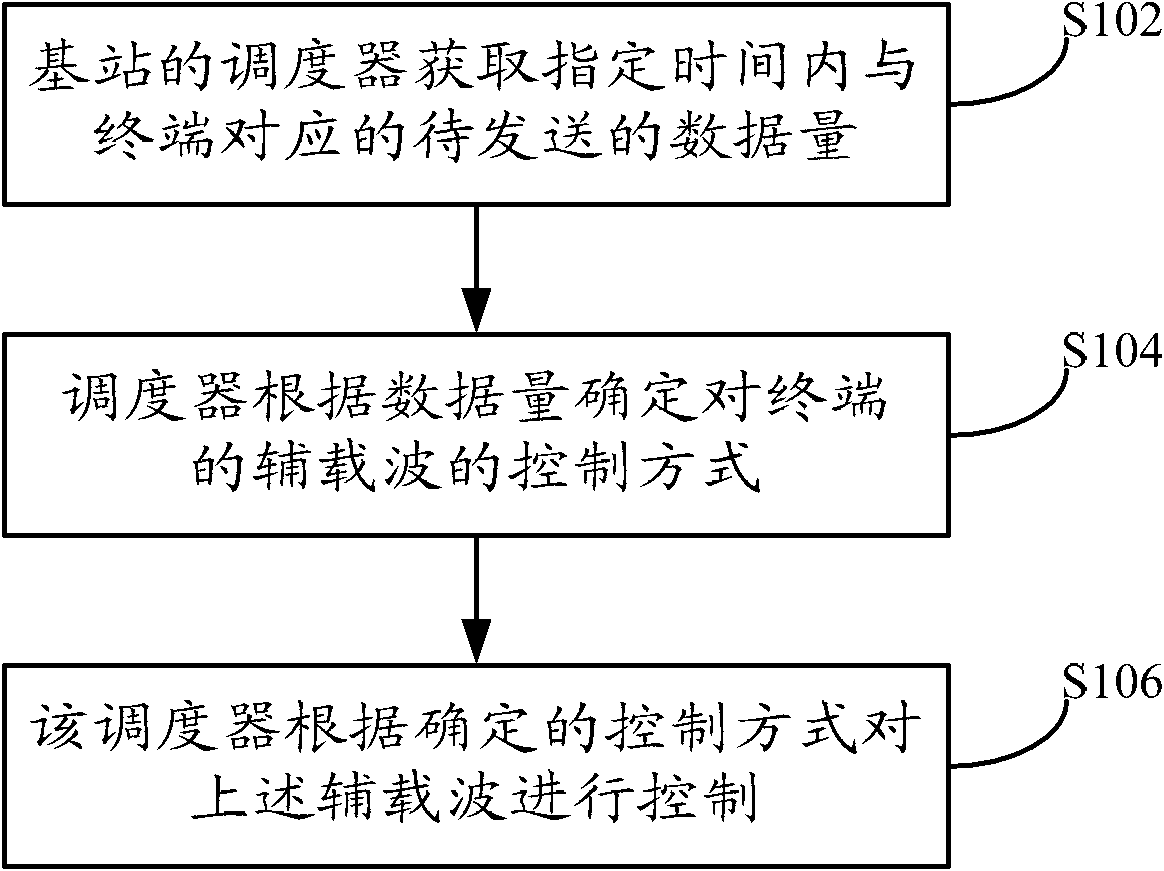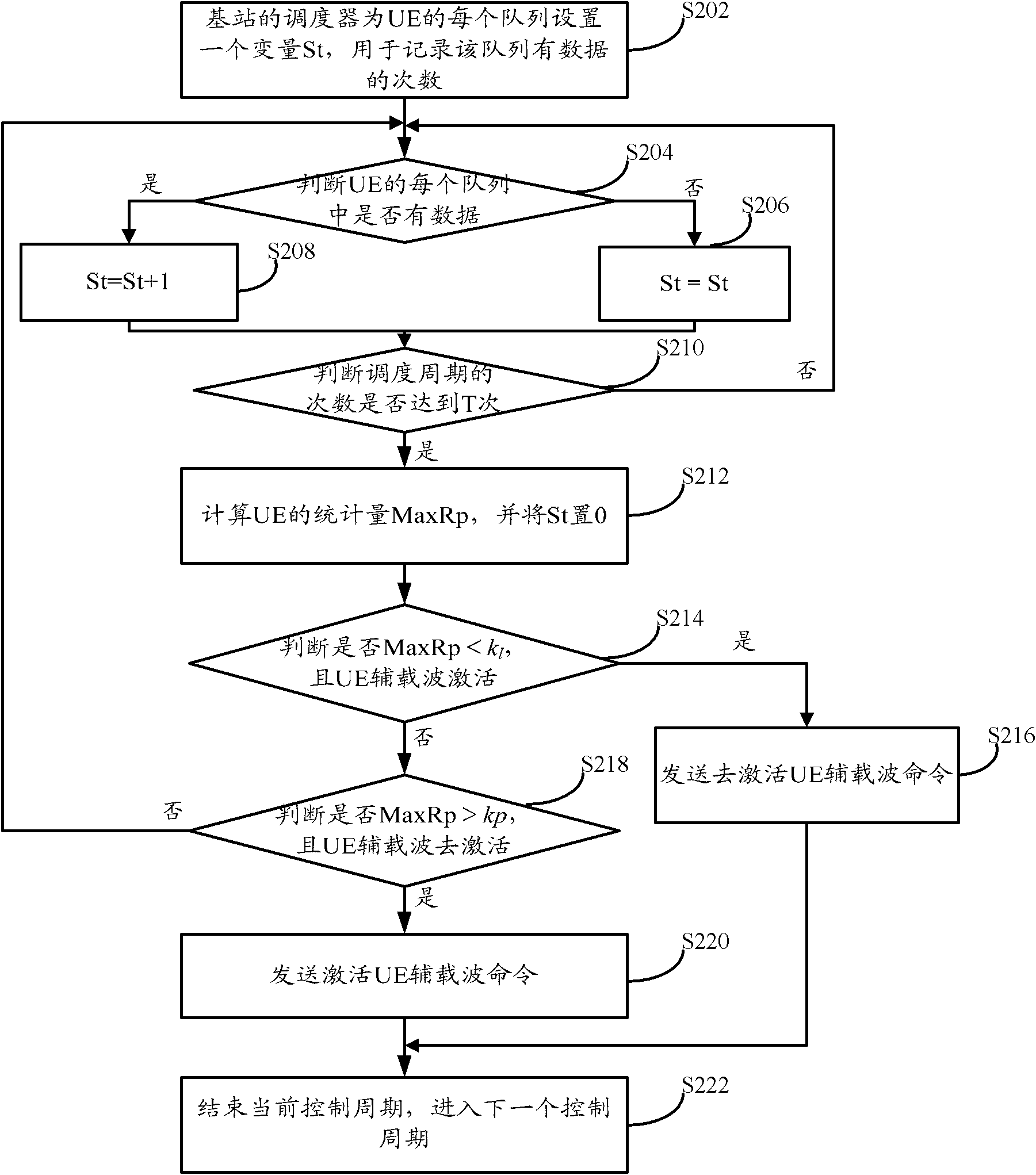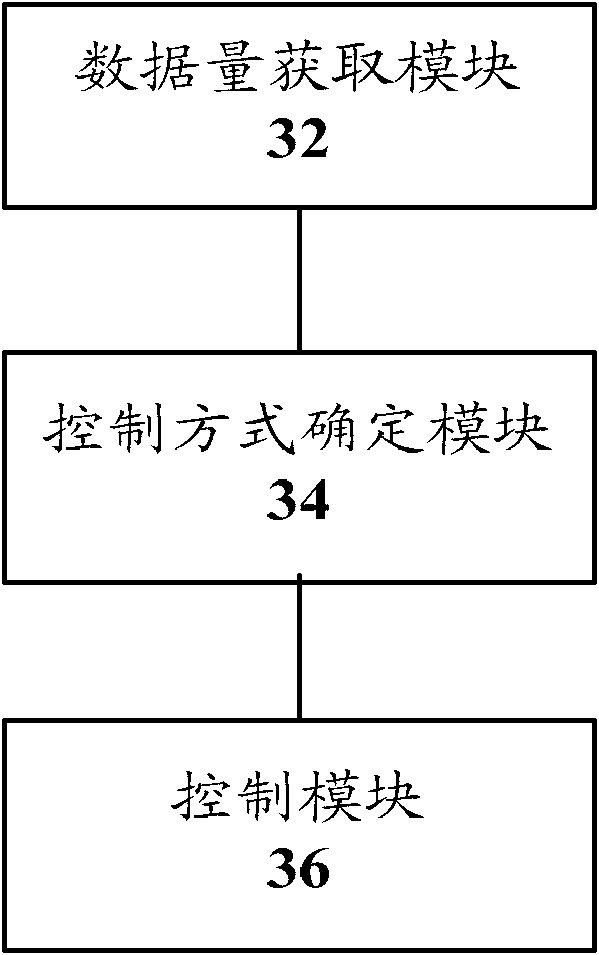Method and device for controlling auxiliary carrier of double carriers
A secondary carrier and dual carrier technology, applied in the field of downlink data services
- Summary
- Abstract
- Description
- Claims
- Application Information
AI Technical Summary
Problems solved by technology
Method used
Image
Examples
Embodiment 1
[0016] figure 1 It shows a flowchart of a method for controlling a dual-carrier secondary carrier according to an embodiment of the present invention, and the method includes the following steps:
[0017] Step S102: The scheduler of the base station obtains the amount of data to be sent corresponding to the terminal within a specified time, where the terminal is a dual-carrier terminal;
[0018] Among them, the length of the designated time can be set based on experience, for example, the designated time is set to a designated number (500) of the scheduling period, and the scheduling period of the scheduler is usually 2 ms. Based on this, the process for the scheduler to obtain the amount of data may be: the scheduler counts the number of times that there is data to be sent in the buffer area corresponding to the terminal in a specified number of scheduling periods; and determines the amount of data to be sent corresponding to the terminal according to the number of times The propo...
Embodiment 2
[0034] This embodiment provides a method for controlling a dual-carrier secondary carrier. The method can be implemented by the following modules, which can be set on the base station. The specific modules involved are as follows:
[0035] 1) Scheduling module of HSDPA scheduler;
[0036] 2) HSDPCCH demodulation module of HSDPA scheduler;
[0037] 3) Algorithm module of HSDPA scheduler;
[0038] The scheduling module of the scheduler will first determine whether the HSSCCH order period for the activation / deactivation of the DC secondary carrier has arrived during 2ms scheduling. If the HSSCCH order period is satisfied, it will determine whether the DC UE needs to go according to the corresponding algorithm provided by the algorithm module. Activate the secondary carrier; if the condition for sending the HSSCCH order to deactivate the secondary carrier is met, the scheduling module of the scheduler will send the HSSCCH order command to the UE to notify the UE to deactivate the correspo...
Embodiment 3
[0074] image 3 Shows a structural block diagram of an apparatus for controlling a dual-carrier secondary carrier according to an embodiment of the present invention. The apparatus can be set on a scheduler of a base station. The apparatus includes: a data amount acquisition module 32, a control mode determination module 34, and Control module 36; the functions of each module are as follows:
[0075] The data amount acquisition module 32 is configured to acquire the amount of data to be sent corresponding to the terminal within a specified time, where the terminal is a dual-carrier terminal;
[0076] The control mode determination module 34 is connected to the data volume acquisition module 32, and is used to determine the control mode for the secondary carrier of the terminal according to the data volume acquired by the data volume acquisition module 32, where the control mode includes: activating the secondary carrier and deactivating the secondary carrier ;
[0077] The control ...
PUM
 Login to View More
Login to View More Abstract
Description
Claims
Application Information
 Login to View More
Login to View More - R&D
- Intellectual Property
- Life Sciences
- Materials
- Tech Scout
- Unparalleled Data Quality
- Higher Quality Content
- 60% Fewer Hallucinations
Browse by: Latest US Patents, China's latest patents, Technical Efficacy Thesaurus, Application Domain, Technology Topic, Popular Technical Reports.
© 2025 PatSnap. All rights reserved.Legal|Privacy policy|Modern Slavery Act Transparency Statement|Sitemap|About US| Contact US: help@patsnap.com



